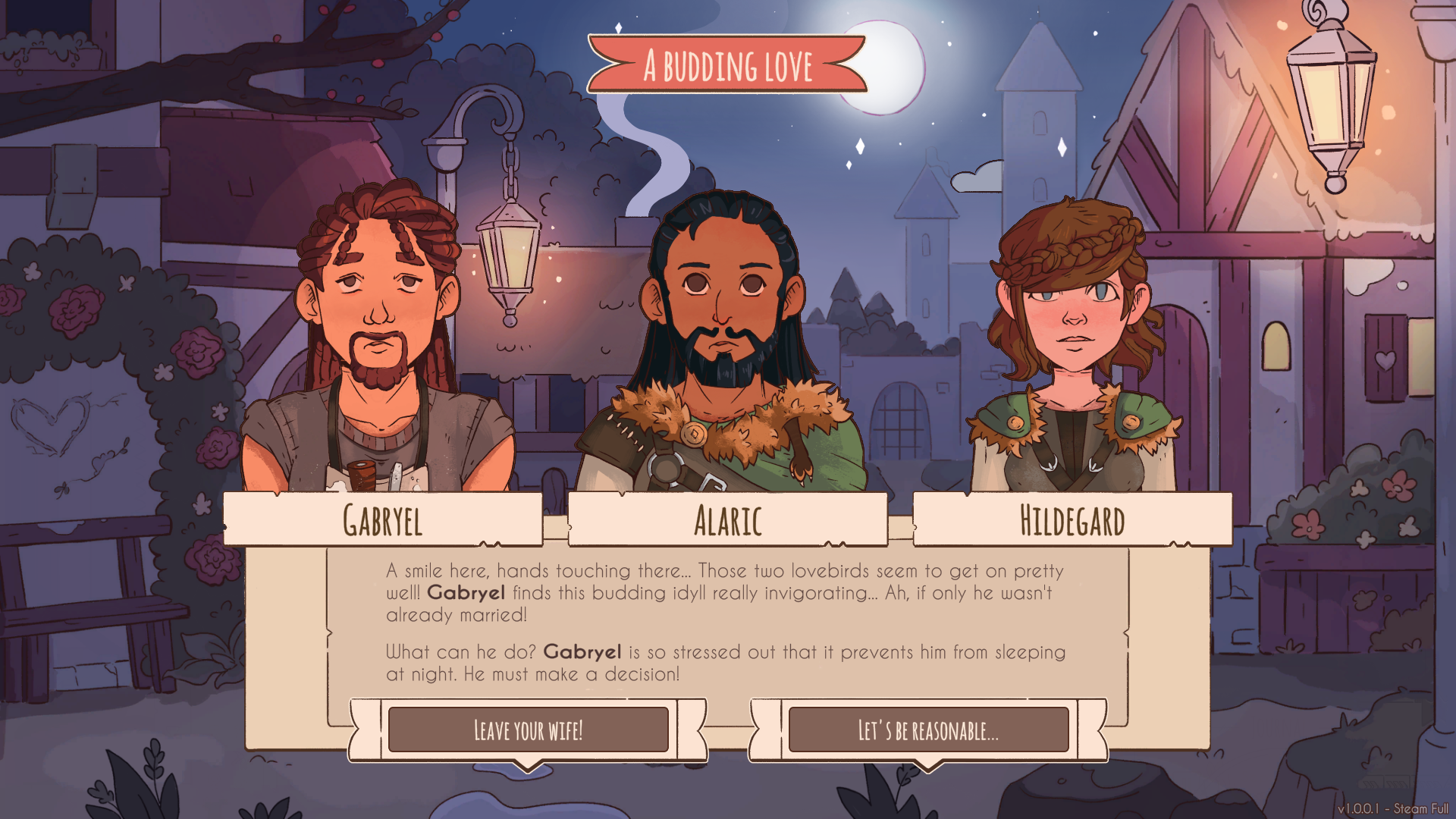Our Verdict
Lakeburg Legacies is an awkward, goalless mix of contradictions and impersonal systems.
PC Gamer's got your back
A villager dies in their 40s after a life of hard labour in questionable working conditions, leaving behind a beloved partner and young child. How does their widow—every widow—react in Lakeburg Legacies, a self-styled "social-based village management sim where love is your favourite resource"? By immediately—immediately—hoping to remarry. You'd think they'd at least let their past love's corpse go cold before they moved in with someone else, but according to this game, that's not how love goes.
What is it? Build and grow a loved-up mediaeval village
Release date: July 20, 2023
Expect to pay: $23
Developer: Ishtar Games
Publisher: Ishtar Games
Reviewed on: i7-10750H, RTX 3070 (laptop), 16GB RAM, SSD
Steam Deck: N/A
Multiplayer? No
Link: Steam
It's just one of many strange contradictions lurking in a superficially cute 'n' cozy game that claims to put the lives and lineages of the randomly generated people who pass through my village first, only to then give them less personality than an Age of Empires shepard.
Lakeburg Legacies does at least start off on the right foot, making it crystal clear that sexual preferences just aren't a thing here. Anyone can marry anyone they're not related to, and any couple can have children. Which would be great if only the whole "falling in love" business hadn't been reduced to nothing more than a quick click through three random micro-scenarios pulled from a disappointingly small list. All love needs, apparently, is me as a disembodied cursor correctly remembering at least one thing on the prospective partner's short list of likes and dislikes.
Oh, you hate flowers too but have opposing views on public executions? Quick, put a ring on it. Wedding bliss.
Lakeburg is a game with 10 clever ideas that then trips into 20 ways to spoil them. That extends to the way it treats successive generations of peasants and nobles. Children are the lifeblood of the village: the continuation of a loving family, the heir to the village's throne, the mason's apprentice. They are also automatically kicked out of their homes the instant they turn 18, officially homeless unless you manually assign them a vacant abode. Much younger children can also end up homeless if two existing widowers wed and there's not enough room in their home (or you don't have the resources to expand it) so they can all live together—the game's only solution to this self-inflicted problem is to make literal toddlers wander the streets until they either die or survive until adulthood, at which point they can finally be given a home of their own.
The kids aren't alright
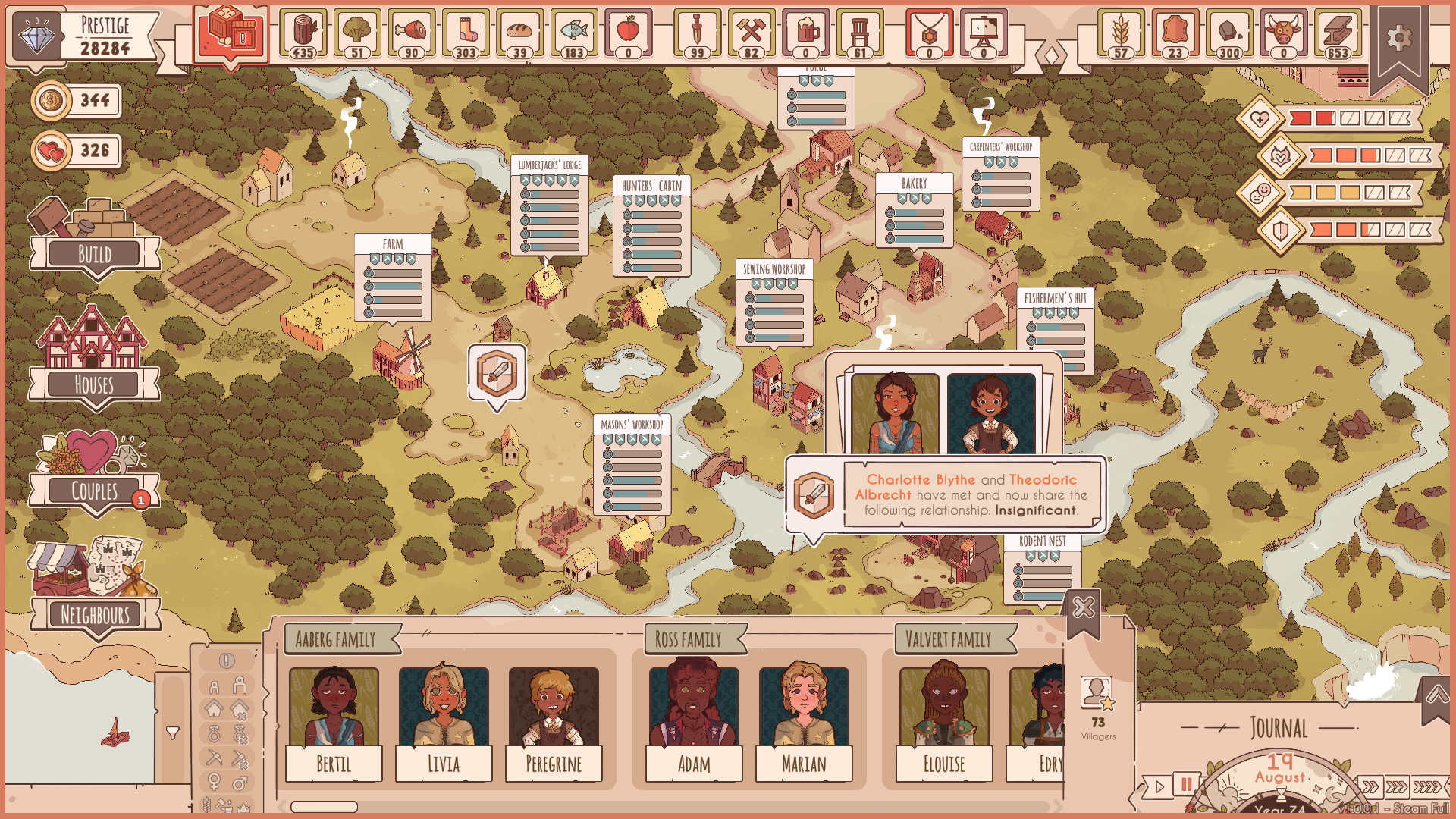
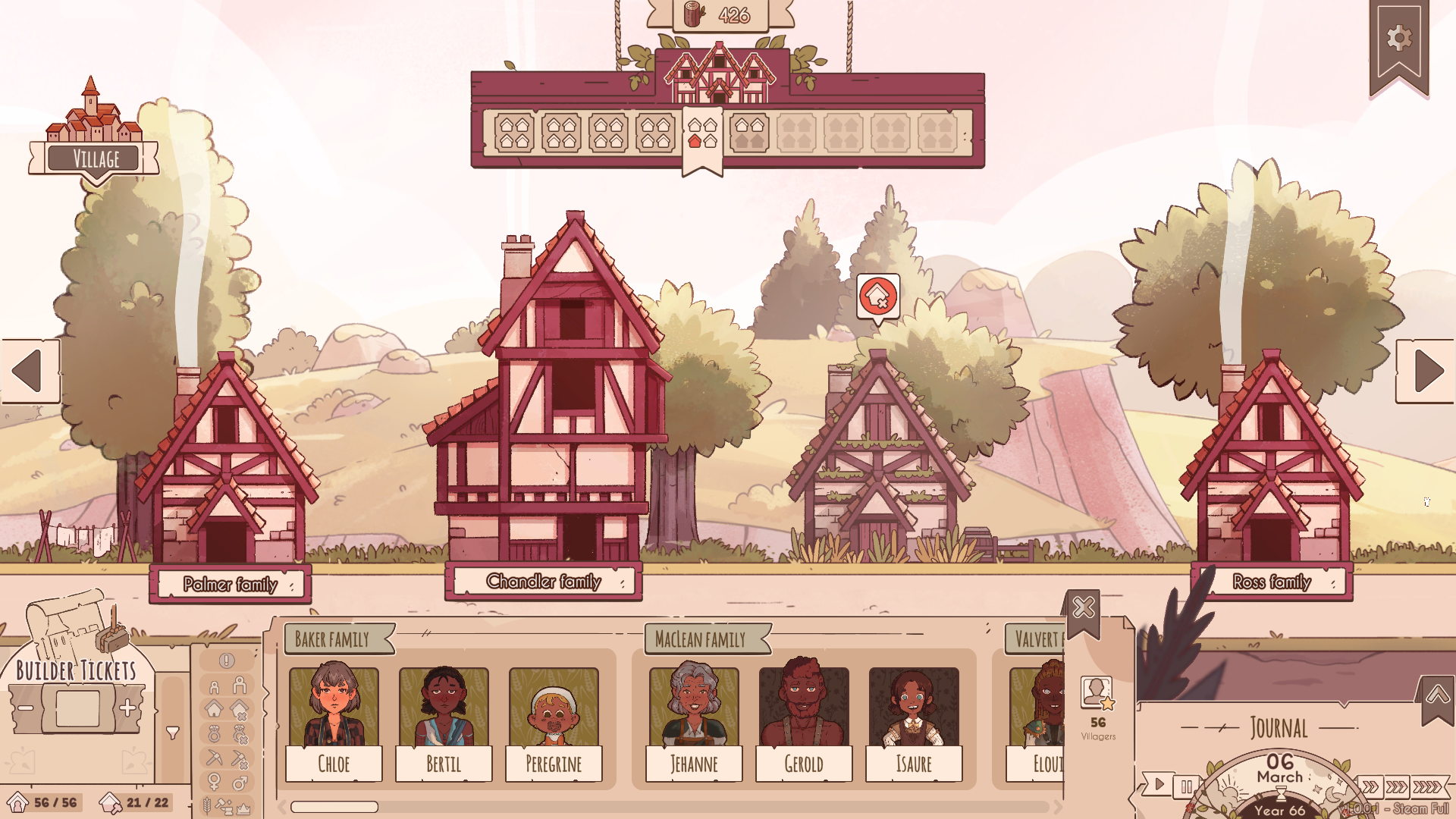
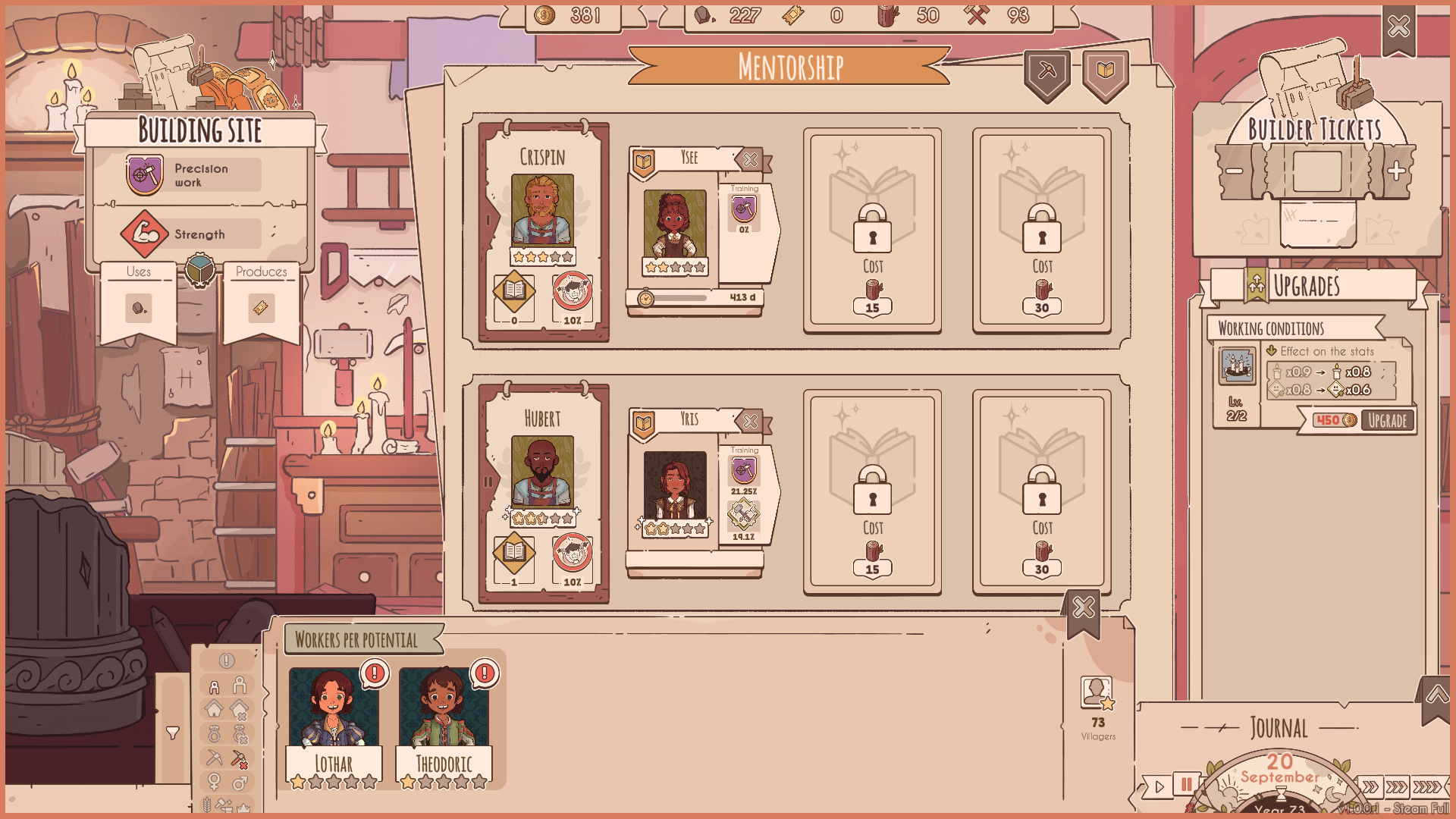
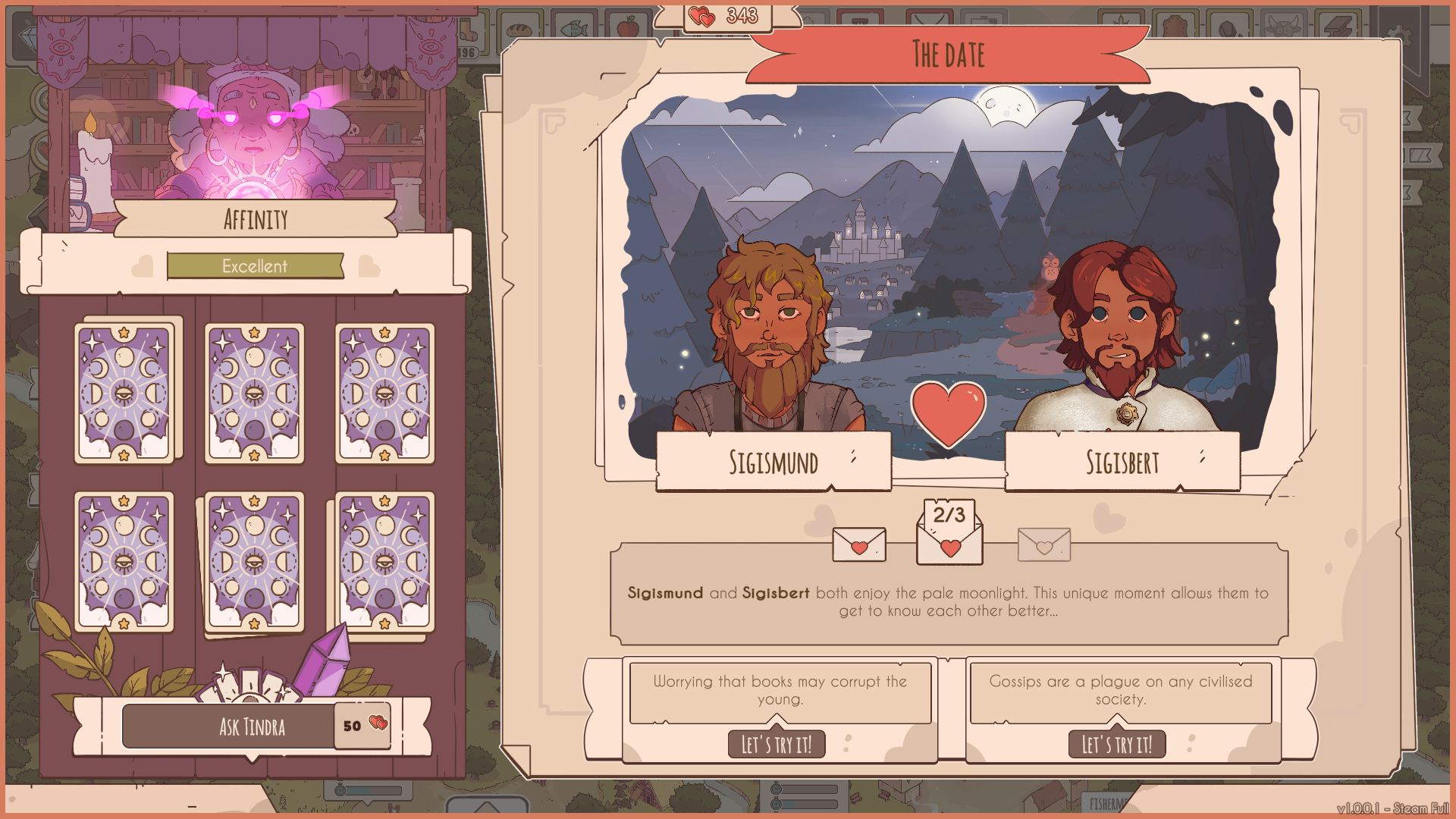
This is not only at odds with the community-focused village atmosphere the game is trying to push, it shows a distinct lack of imagination. This is a game that can show me the precise relationship affinity debuff that occurs if a couple don't support the same champion at a jousting tournament, but can't envisage a married couple living in two homes, or taking a mild knock to their productivity or happiness if they have to temporarily squeeze two children into one bedroom? An 18-year-old can't get saddled with some sort of undesirable "stuck in the nest" trait while I find the resources—or simply the time to notice—that I need to build or assign them an empty home? Do my villagers honestly think so little of their own children?
Building up the village these people live in forms the other half of the game, and at first it felt like there was a lot to take in; a seemingly endless barrage of tutorial text popped up whenever I opened a new menu. I appreciated the attempt to explain everything, even if it did soon become clear that not much of it mattered anyway, because although Lakeburg Legacies is packed to the rafters with stats, most of my interaction is frustratingly hands-off.
I don't get to decide where any building's placed, or even how many of them I can have, and that causes problems on both the personal and productive sides of the social-sim experience. I can't construct a manufacturing quarter in the heart of the village, or make a point of giving the workers homes in the prettiest part and shoving the royals off somewhere awful. I can't choose to make a village that thrives on exporting manufactured goods, or values the arts and welcoming social spaces above all else. I can't even build two lumberjacks' lodges if I keep running low on timber or have more skilled tree-felling labourers than I have vacancies to fill.
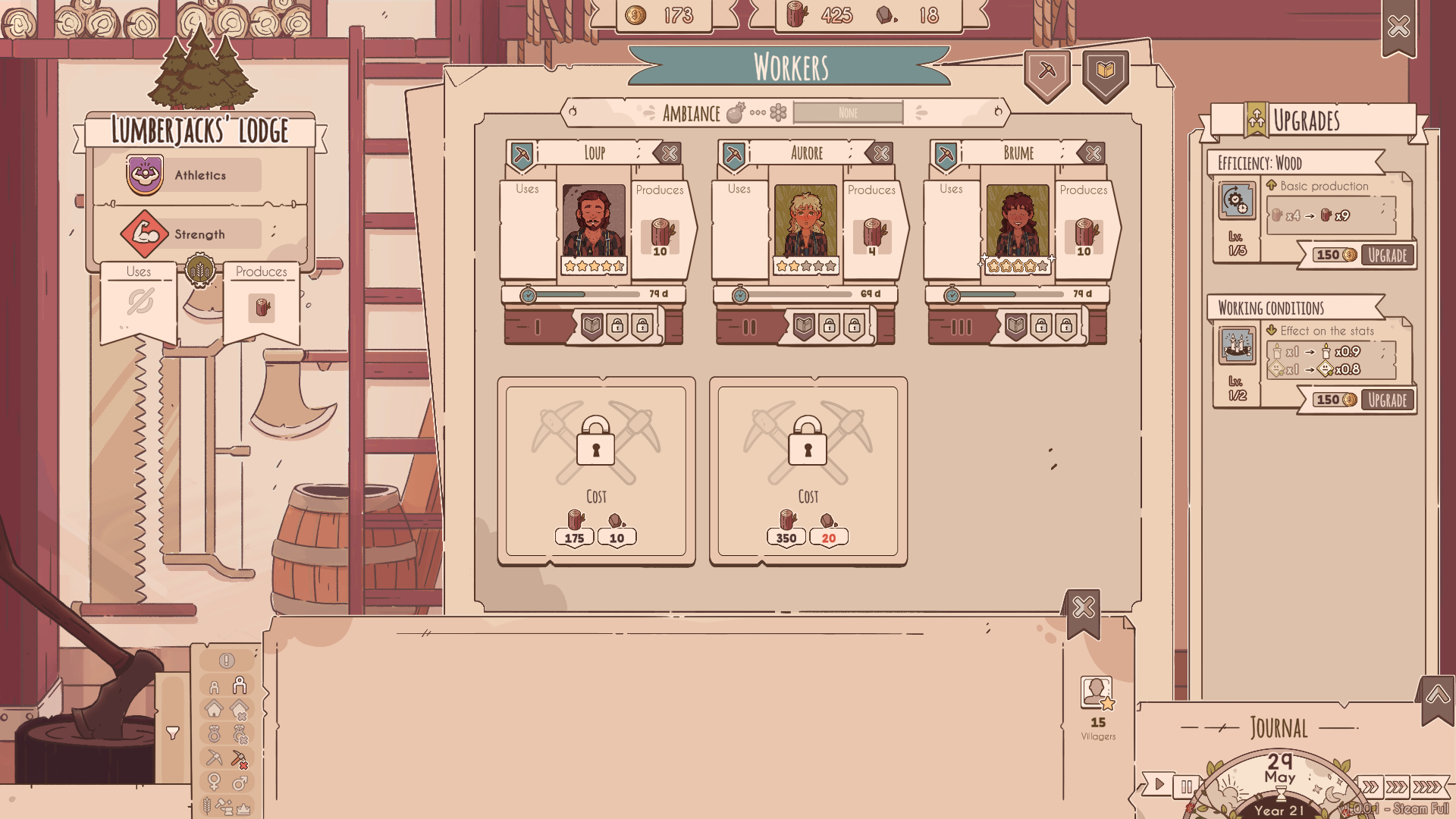
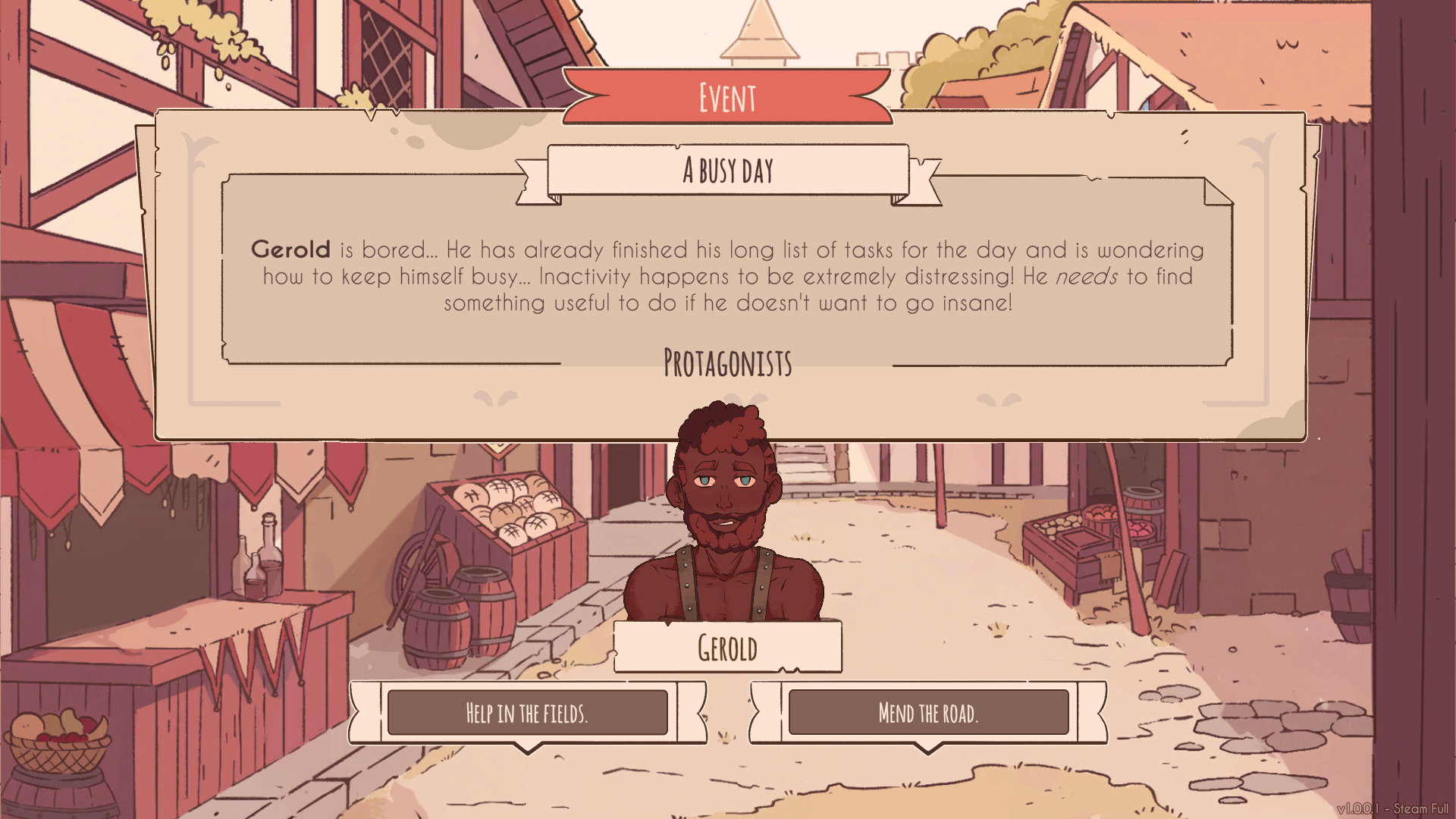
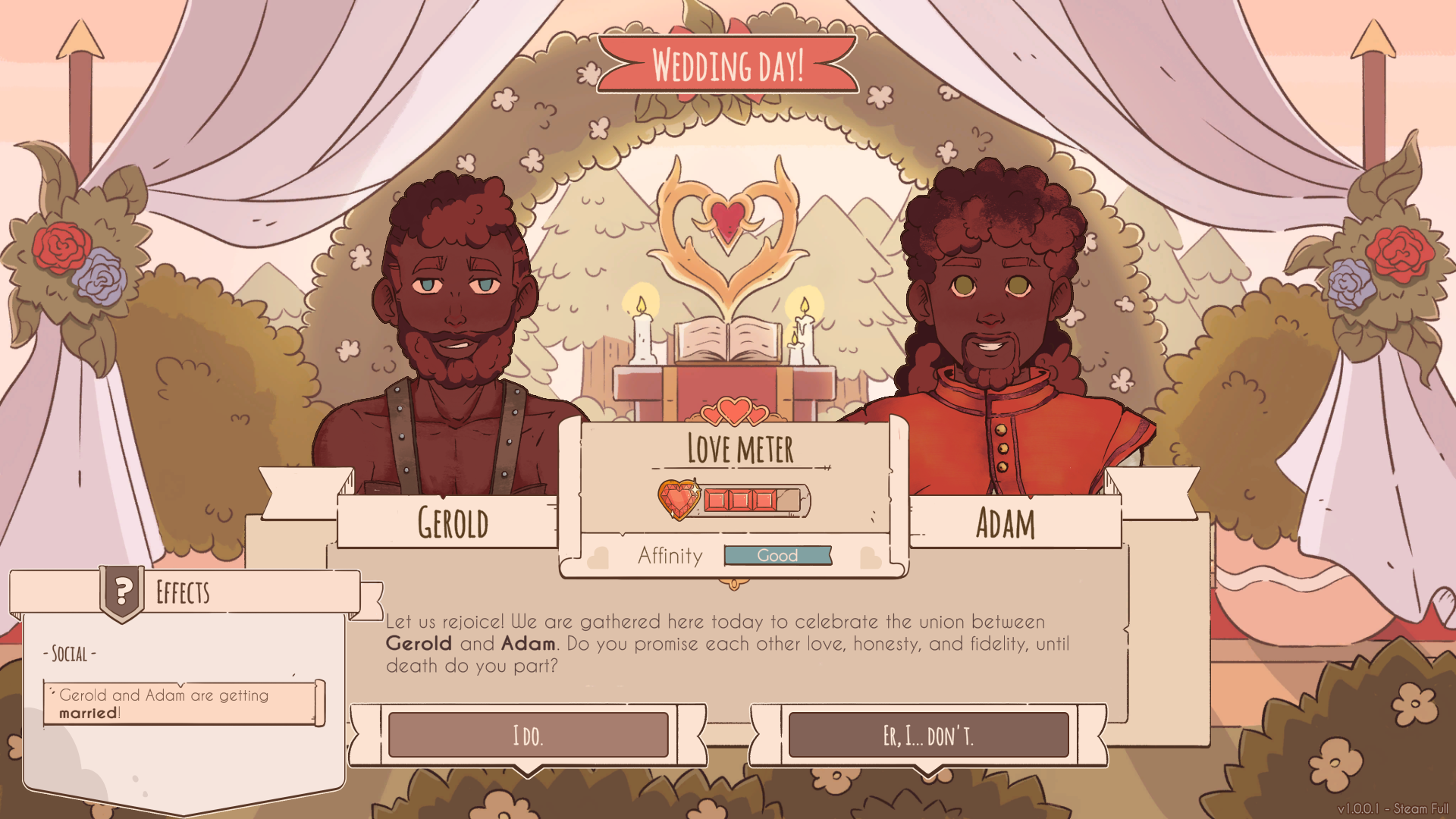
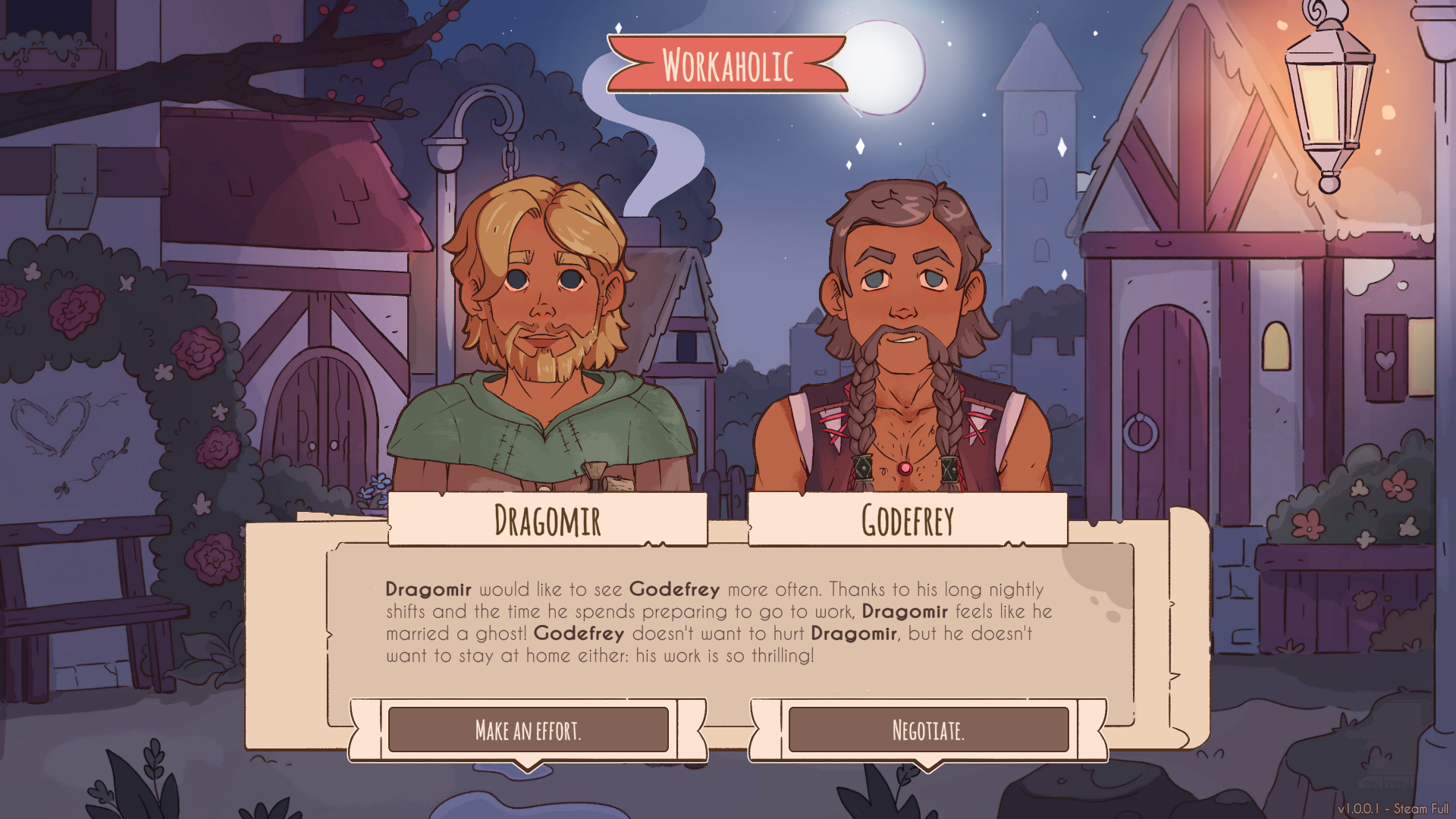
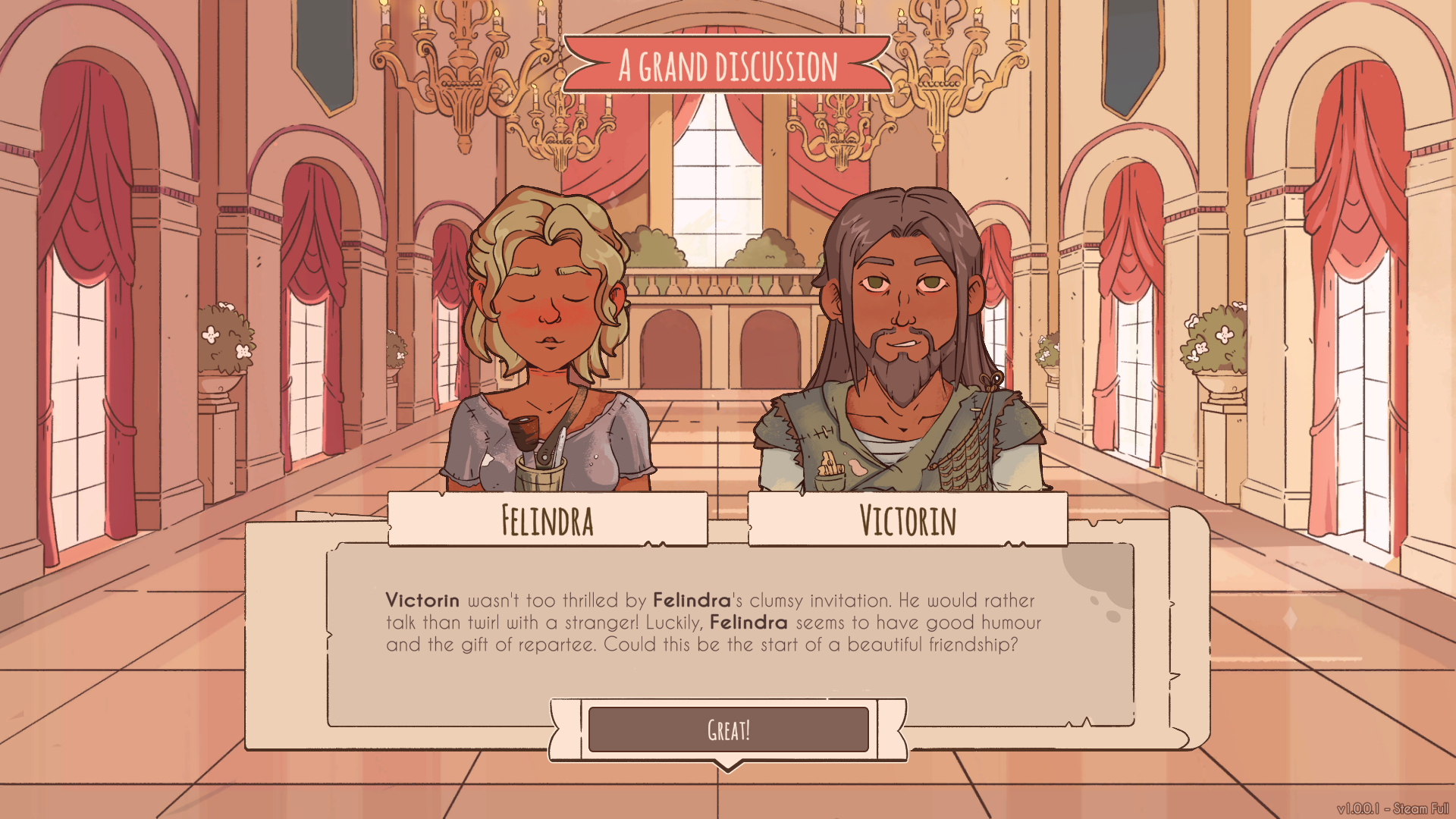
And although I had more to do as the game went on, it was just a greater quantity of the same things to click. Build enough homes for everyone, make sure people have a job they're not terrible at, get people married to the best partner available ASAP, upgrade whatever facilities I could. Done. I didn't feel any difference when I could suddenly have people live their lives as assassins, master forgers, disgruntled mentors to eager apprentices, or even queens: they were just another bundle of stats to shove in a free slot so I could make another set of numbers go up. I never got to see any of the clothes seamstresses spend their lives sewing, the paintings some villagers claimed to love so much, or even just people walking out to the fields in the morning. Instead I was left staring at the same general overview for hours and hours, the villagers' lives reduced to bars and numbers.
It's an oddly impersonal experience for a game about relationships. I'm a disconnected godlike presence rather than a little mayor with big dreams, so I never have to worry an angry mob will kick me out if I fail to live up to their expectations. There is no rival village to compare my efforts to or tempt better quality villagers away from. And the villagers don't seem to care much about each other in any obvious way, or take any pride in their work. The only real goal is to rack up "prestige," an ephemeral, passively earned substance that serves as an end game score once my preallocated number of in-game years have run dry, which is then converted into coins I can use to unlock artwork showing generic scenes of village life in a gallery. There's nothing meaningful to strive for.
Lakeburg Legacies likes to pretend its villagers have hopes and dreams, but it only ever treats them—and me—as production units, not people.
Lakeburg Legacies is an awkward, goalless mix of contradictions and impersonal systems.

When baby Kerry was brought home from the hospital her hand was placed on the space bar of the family Atari 400, a small act of parental nerdery that has snowballed into a lifelong passion for gaming and the sort of freelance job her school careers advisor told her she couldn't do. She's now PC Gamer's word game expert, taking on the daily Wordle puzzle to give readers a hint each and every day. Her Wordle streak is truly mighty.
Somehow Kerry managed to get away with writing regular features on old Japanese PC games, telling today's PC gamers about some of the most fascinating and influential games of the '80s and '90s.
